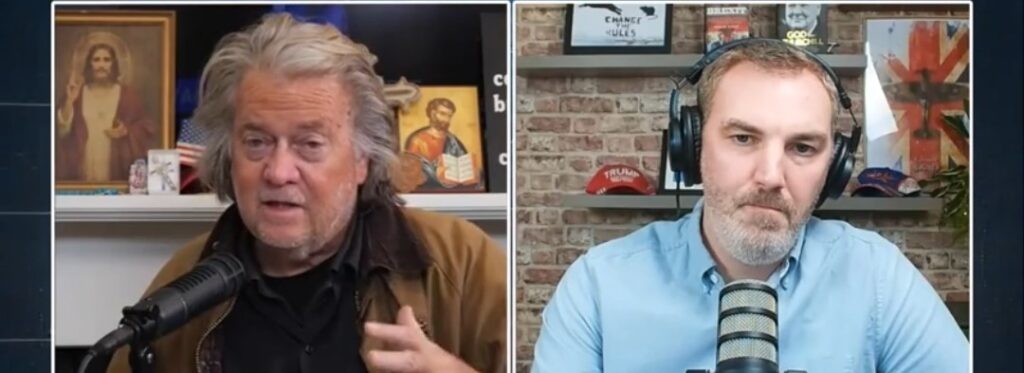Steve Bannon, the founder of War Room, engaged in a conversation with Peter Mcilvenna, co-founder of “Hearts of Oak” and contributor to The Gateway Pundit, focusing on the implications of the Corporate Transparency Act and its implications for government overreach. Mcilvenna characterized the Act as an extensive invasion of privacy by the federal government, comparing it to the most aggressive domestic surveillance program since the Patriot Act. He highlighted that the Act had previously been vetoed by former President Trump due to concerns over its threat to small business owners, but was passed by Congress shortly after.
The Corporate Transparency Act demands that business owners submit personal and sensitive information into a new federal database, raising questions regarding the privacy and security of that data. Bannon inquired whether this legislation was merely a proposal or an enforceable law, to which Mcilvenna confirmed that it was indeed law, mandating compliance from all business owners. He stressed the urgency for compliance, as those who fail to register by the January deadline could face severe penalties, including hefty fines and potential jail time.
Mcilvenna mentioned that a recent ruling from a Texas court deemed the Act unconstitutional, bringing temporary relief to concerned business owners. However, he cautioned that this preliminary injunction is not a final decision, indicating that Biden’s administration would likely continue to push for the Act’s enforcement before the impending deadline. He expressed particular concern that the administration might target conservative-leaning businesses through this legislation.
Bannon echoed these concerns, emphasizing the inappropriateness of federal intervention in state-registered business operations. Mcilvenna reiterated that it is not within the government’s authority to require a business to disclose the intricacies of its operations. He articulated a broader apprehension that such legislative measures could serve as tools of repression aimed at specific ideological groups, particularly conservatives, thereby threatening the fundamental principles of free enterprise and privacy rights.
Both Bannon and Mcilvenna posed critical questions regarding the motivations behind the Corporate Transparency Act. They speculated that the Biden administration may be attempting to utilize the legislation as a means of controlling and surveilling businesses that hold conservative values. This concern brings to light underlying tensions between government policy and personal liberties, emphasizing the potential consequences for business owners who might find themselves in non-compliance with such regulations.
In conclusion, the discussion between Steve Bannon and Peter Mcilvenna highlights significant apprehensions about government overreach through the Corporate Transparency Act. Their insights expose a broader narrative about the implications of excessive federal control over private enterprises and the ongoing struggle between individual rights and state power. As the deadline approaches, the dialogue surrounding this law will likely intensify, drawing attention to the fundamental issues of privacy, freedom of commerce, and the ideological battles playing out in contemporary American politics.

